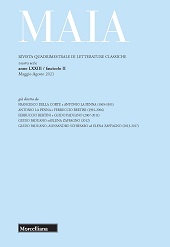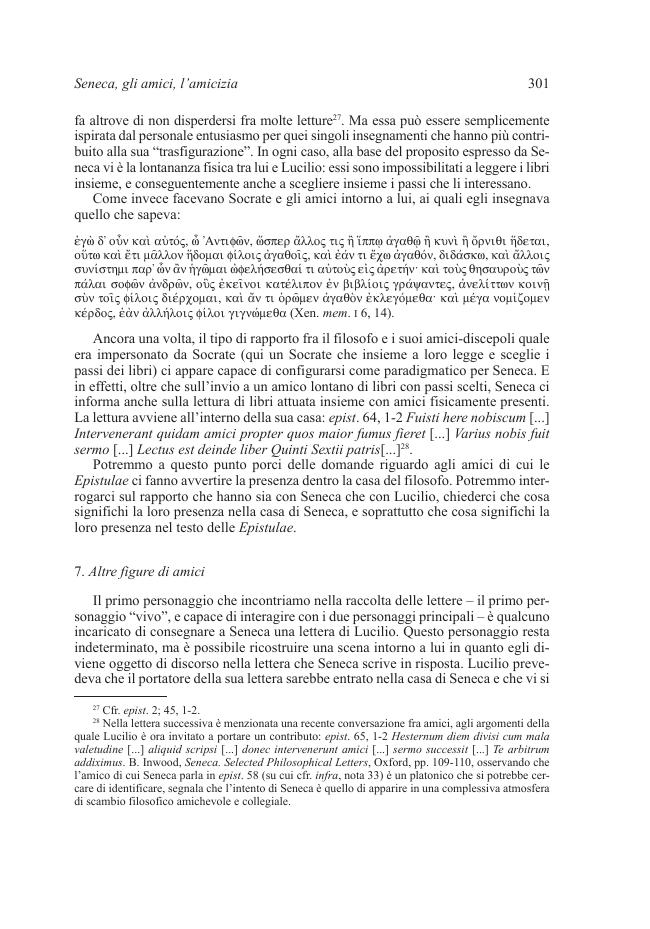Seneca, gli amici, l'amicizia
P. 285-317
The article studies Seneca's conception of friendship in the Letters to Lucilius, starting from the examinationof the figures of friends that are represented in them, and above all, as it is natural, starting from the examination of thecharacter of Lucilius himself. In two significant passages the addressee of the letters is qualified as Seneca's own opusand munus. This terminology seems to refer to the sphere of benefits and helps to characterise Lucilius not only as adisciple of the philosopher, but as a friend: in fact, in Aristotle the benefit is treated, with similar terminology, withinthe general sphere of friendship.
The virtuous friendship that Seneca intends to establish with Lucilius, and to proposeas a model of general validity, does not coincide completely with the Stoic model of friendship, but presents itself asmore problematic and more adherent to reality through the continuous comparison with the Socratic experience handeddown by Xenophon and with the teaching offered by Cicero in De amicitia. The other friends, whom Seneca intends toeducate to virtue with the collaboration of Lucilius, are not casual presences: the friends who come to his house or withwhom he communicates through Lucilius, are (or aspire to be) the “best” among the citizens, and come to represent theconcrete possibility of an intermediate condition between the generic vice of Roman society and the abstractly virtuousworld of the sapientes. [Publisher's text]
-
Articles from the same issue (available individually)
-
Information
ISSN: 2611-805X



